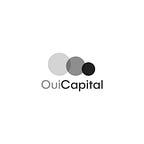Are African startups capable of billion-dollar valuations?
Earlier this year, Flutterwave’s Series D announcement broke Nigerian Tech Twitter, as it stood as a 2022 landmark achievement for the African startup scene. Coming from an over $1B valuation, the $250M raise brought Flutterwave to a valuation of over $3B. These numbers sparked conversations across Twitter, not just about the possibility of Flutterwave–esque companies reaching higher valuations in less time, but also surpassing traditional companies. Before you consider this article late-to-the-party, stick with us as we share our view of the potential of the African ecosystem.
It will be lacklustre to presume that valuation is arrived at by grabbing a seat at the round table and calling out figures till we arrive at a number that sounds close to home. Entrepreneurs and investors alike consider multiple factors that impact the valuation process. Factors such as but not limited to the product, total addressable market, business model, forecasted revenue, competitor performance, market opportunity are assessed. There’s no universal formula, so multiple valuation models are infused to bring the valuation window to a close and leave everyone at the table smiling.
Arguments have been raised around African startups jumping a few ropes and rushing up numbers to arrive at million-dollar valuations with almost no traction to show for it. This may or may not be true, however what is certain is the growth potential that Africa possesses.
As of May 2021, the total population of Africa amounted to over 1.37 billion. The continent is projected to be home to nearly 1.7 billion people and an estimated $6.7 trillion worth of consumer & business spending by 2030. In 2020, transactions on mobile money platforms reached $490 billion and it has been speculated that $155bn of economic value added will be generated by mobile technologies and services by 2025. These skyrocketing numbers coupled with a 43.1% penetration rate of internet users in 2021, are positive indicators that the African market is experiencing unprecedented growth. Although a large portion of the market is underbanked and unbanked, this in itself creates an opportunity for startups to create disruptive solutions. With various startups taking advantage of these pain points, Africa is gradually on its way to the promised land filled with billion dollar companies.
Also, the establishment of The African Continental Free Trade Area (AfCFTA) signed by 54 out of 55 African Union member states (with only Eritrea holding out) presents another window of opportunity for growth within Africa. The AfCFTA is the largest trade bloc since the creation of the World Trade Organization and it seeks to create a single market for goods and services in order to deepen the economic integration of Africa. When implemented, this will accelerate intra-African trade, boost Africa’s trading position in the global market and usher in a new era of development across the continent.
With the surge of billion-dollar valuations we saw rise in 2021, it is clear that Africa is taking the center stage and now is a good time to get in the room. The continent is peculiar at this point for two reasons:
- African startups have proven that they can build infrastructure for the ecosystem, provide world-changing solutions, expand and even reach billion dollar valuations.
- Despite infrastructural and regulatory complexities, African founders have gone beyond the point where Silicon Valley(SV) was regarded as the blueprint for startup success. Today you find that African founders are breaking the SV paradigm, rewriting the startup success playbook and surpassing their own metrics.
This is why we’re bullish on supporting the great minds building for Africa. Are you one of them? Say hello to us at hello@ouicapital.vc we’re eager to hear about what you’re building.
